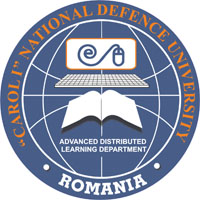ASSESSING SPEAKING - AUTONOMY AND AUTOMATICITY IN ESP
ASSESSING SPEAKING - AUTONOMY AND AUTOMATICITY IN ESP
Author(s): Elena PăcurarSubject(s): Education
Published by: Carol I National Defence University Publishing House
Keywords: assessment; speaking; task-based approach; video; wiki
Summary/Abstract: The paper is an investigation of the underlying factors that eventually lead to achieving autonomy and automaticity in the process of language learning. It starts from an experimental procedure of assessing speaking among students in Tourism, at "Babeş-Bolyai" University. Initially designed as a task for developing fluency outside the classroom context (the test of real linguistic autonomy), the recorded spoken productions of students in Tourism were integrated in the final assessment. The paper discusses the importance of a task-based approach, a task-based syllabus and of collaborative tasks. It also questions the way technology assists the teaching and assessment practices by looking into the advantages of using wikis in and outside the classroom context. As ICT skills are included in the spectrum of academic prerequisites, the role of media and technology - assisted learning, teaching and assessing has become evident. As assessing speaking is time and resource-consuming, solutions to making it more efficient and less class-dependent must be identified. Another key-issue that the paper addresses is that of authenticity: the authenticity of tasks, of context, of participants. Students' recorded productions were organized in an authentic context (hotel industry) and this helps develop communicative competence and an awareness of the needs of the job market. From a pedagogical perspective, a selection of the video recordings presented in class offered students the possibility to self-assess and inter-assess their linguistic competence (use of checklists). The role of feedback and washback is further analyzed in relation to the question of the assessment impact on the overall teaching practice. This, in turn, should closely respect the basic principles of assessment (feasibility, validity, authenticity), as they are formulated in the Common European Framework of Languages.
Journal: Conference proceedings of »eLearning and Software for Education« (eLSE)
- Issue Year: 11/2015
- Issue No: 03
- Page Range: 441-446
- Page Count: 6

